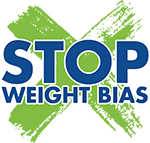Weight Bias in the Workplace


What Weight Discrimination in the Workplace Looks Like
Men and women who are affected by excess weight are both less likely to be hired and are evaluated more negatively than non-overweight individuals. Furthermore, weight bias in the workplace affects the employee’s relationships and it has tangible impacts in their professional life.
For instance, employees who experience weight bias in their workplace are:
- Less likely to be hired after an in-person interview
- More likely to be given a lower wage or salary
- Less likely to be given a promotion or position overseeing others
- More likely to be penalized in a current position
- More likely to be hired for a non-contact position (doesn’t interact with many people and is not the face of the company)
- Higher rates of psychological disorders like depression or anxiety
- An unwillingness to do physical activity
- Challenges with overeating or binge eating
- Continued stressed that affects functions of the body, like hormone production


Having a higher weight is not a character flaw or an indicator that a person is unfit to perform a job – whether this is due to their appearance, work ethic or intelligence. Weight is not a measure of an employee’s value to a company or the potential they have.
What can I do to #StopWeightBias ?
1. Ask yourself if you hold negative opinions about people with excess weight. If so, remember obesity is a complex disease with multiple causes including genetic, biological, and other noncontrollable factors.
2. Challenge people who express negative opinions about people with excess weight.
3. Be Part of the Solution. With your help, we can build a better world, free of weight bias. We deserve a world where everyone is treated with dignity and respect.
Join the movement to Stop Weight Bias!
Click Here to Get Started!
